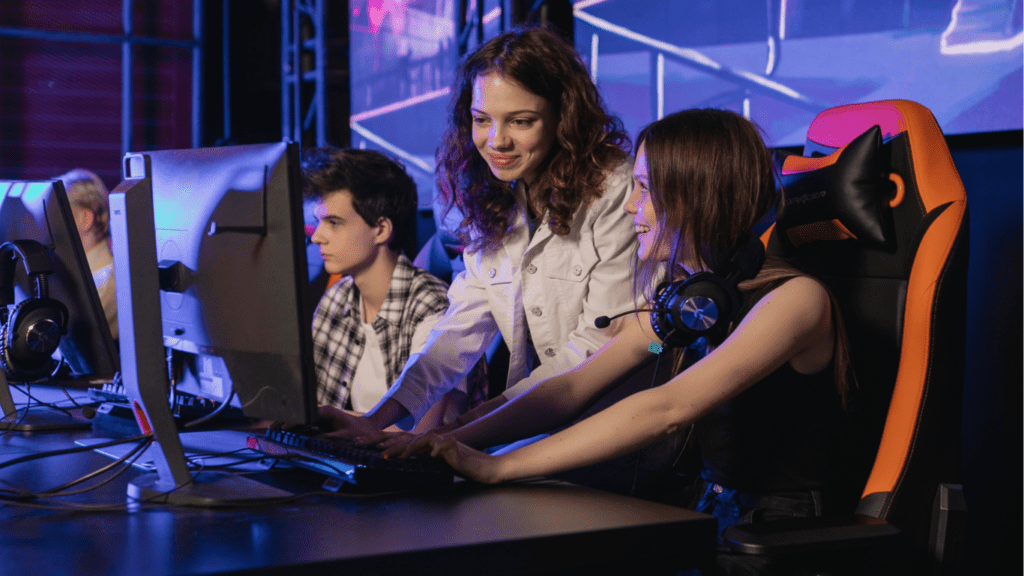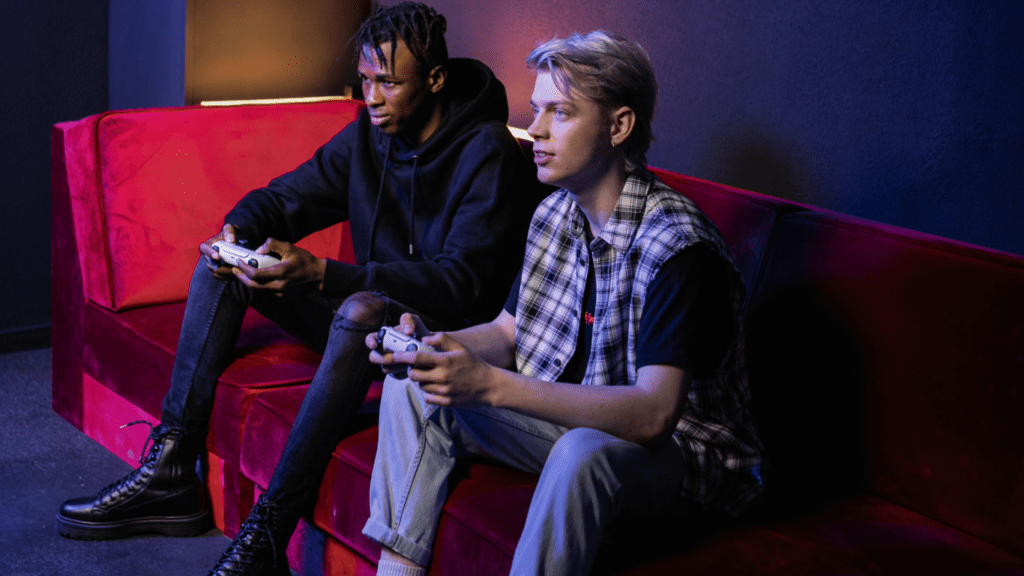Understanding E-Sports Sponsorships
E-Sports sponsorships serve as a mutually beneficial relationship between brands and competitive gaming teams. Brands gain access to a rapidly growing audience primarily consisting of young, tech-savvy individuals who spend considerable time watching e-sports events. Teams and players receive financial support, enabling them to focus on training and improving performance in high-stakes tournaments.
Brands sponsor e-sports teams for several key reasons. They aim to increase brand awareness among a demographic that’s often hard to reach through traditional advertising methods. By associating with popular teams, brands create positive affiliations and boost their credibility within the e-sports community. Examples include major companies like Intel and Red Bull, which have longstanding relationships with top-tier teams.
There are different types of sponsorships in e-sports. Financial sponsorships provide cash to teams, covering expenses like:
- travel
- equipment
- salaries
Product sponsorships supply gear or services, from gaming peripherals to nutritional products. Lastly, promotional sponsorships involve marketing support, such as social media promotion and co-branded content, helping to amplify the team’s presence and the sponsor’s reach.
E-sports sponsorships also come with challenges. Brands must carefully choose teams that align with their values to avoid potential controversies. Additionally, the digital nature of e-sports requires innovative marketing strategies, as traditional methods may fall flat with a tech-centric audience.
In essence, e-sports sponsorships play a critical role in the ecosystem, providing vital resources to teams and unique marketing opportunities for brands.
Major Brands in E-Sports
Several leading brands have significantly invested in e-sports, supporting teams and tournaments. These partnerships highlight the importance of e-sports in the modern marketing landscape.
Nike
Nike inked sponsorship deals with top-tier e-sports teams, providing them with high-quality athletic wear and custom-designed apparel. By aligning with teams such as T1 and SK Gaming, Nike taps into a younger, highly engaged audience. In 2019, they signed a significant deal with the League of Legends Pro League (LPL), producing jerseys and footwear specifically for e-sports athletes.
Red Bull
Red Bull has a long history with competitive gaming, sponsoring major e-sports teams and events. Their partnership with Cloud9, one of the leading e-sports organizations, provides teams with tailored fitness programs, nutritional guidance, and training facilities. Red Bull also actively promotes e-sports events, such as the Red Bull Battle Grounds, further solidifying its position in the e-sports ecosystem.
Samsung
Samsung entered the e-sports arena by sponsoring teams and providing cutting-edge technology for events. Their collaboration with T1 includes providing the latest gaming monitors and hardware, enhancing the performance capabilities of players. Samsung’s sponsorship extends to tournaments like the PUBG Mobile Pro League, where they supply high-quality devices for competitors, ensuring the best possible gaming experience.
Impact on Teams and Players

Sponsorships significantly impact e-sports teams and players, offering various benefits that help them thrive in a competitive environment. With major brands involved, their contributions translate into substantial growth for both teams and individual players.
Financial Support
Financial support from sponsors is crucial for e-sports teams. Brands like Nike and Red Bull provide funding that covers essential expenses. This funding ensures teams can afford high-quality equipment, training facilities, and travel. For instance, Samsung’s sponsorship often includes top-tier gaming PCs and monitors, which enhance performance and practice efficiency. Furthermore, financial backing allows players to focus entirely on their gameplay without worrying about financial instability.
Brand Visibility
Sponsorships also enhance brand visibility for teams and players. Wearing branded gear from sponsors like Nike not only showcases team unity but also promotes the sponsoring brand to a global audience. Red Bull sponsors events such as the Red Bull Battle Grounds, increasing teams’ exposure and solidifying their presence in the competitive gaming world. When teams like Cloud9 compete in these events, they gain recognition, which boosts their fan base and attracts additional sponsorships.
Sponsorship Trends
E-sports sponsorships are evolving, shaped by new market entrants and the development of long-term partnerships. These trends reflect the industry’s dynamism and its potential for growth.
New Market Entrants
Several newcomers are making significant strides in e-sports sponsorships. Traditional sports brands like Puma and Adidas have entered the scene. Puma sponsors Gen.G and Cloud9, providing athletic wear that merges performance with style. Similarly, Adidas partners with Team Vitality. Tech companies like Lenovo and Logitech are also expanding their presence by supplying high-end gaming peripherals. Lenovo supports teams like Rogue, while Logitech partners with G2 Esports. These brands recognize the massive opportunity e-sports presents to reach younger, tech-savvy audiences.
Long-Term Partnerships
Long-term partnerships provide stability and deeper integration between brands and teams. Riot Games and Mastercard’s partnership, which began in 2018, supports global events like the League of Legends World Championship. Red Bull’s long-term relationship with Cloud9 includes co-hosted events like Red Bull Battle Grounds, creating consistent brand visibility. Mercedes-Benz partners with ESL Gaming, supplying luxury vehicles and integrating them into game narratives. These enduring relationships build trust and brand loyalty, benefiting both parties and enhancing the e-sports experience for fans.
Case Studies
Exploring specific examples of e-sports sponsorships provides insights into how major brands are leveraging their partnerships to gain traction. I’ll delve into two notable case studies below.
Team SoloMid and BMW
Team SoloMid (TSM) has established a strong partnership with BMW, a leading automotive brand. This collaboration significantly boosts TSM’s visibility. BMW supports TSM financially, enabling the team to invest in state-of-the-art training facilities and equipment.
BMW’s involvement goes beyond traditional sponsorships. They integrate exclusive content featuring TSM players across their social media channels, increasing brand engagement. This synergy between automotive innovation and e-sports culture resonates well with both TSM’s and BMW’s audiences, enhancing brand loyalty.
Fnatic and AMD
Fnatic, one of the pioneering e-sports organizations, partners with AMD, a giant in technology. This alliance offers Fnatic access to cutting-edge processors and graphics cards, crucial for competitive performance. AMD’s advanced products aid Fnatic in staying competitive on the global stage.
Moreover, AMD collaborates with Fnatic to create bespoke content and marketing campaigns. They produce behind-the-scenes videos and live streams showcasing AMD’s technology in action, bolstering both brands’ presence. Fans of Fnatic benefit from exclusive promotions and giveaways, fostering community engagement.
Future of E-Sports Sponsorships
The future of e-sports sponsorships looks promising as the industry continues to grow rapidly. Brands are increasingly recognizing the vast marketing potential within e-sports, leading to more innovative and diverse sponsorship strategies. I see several key trends driving the evolution of e-sports sponsorships.
Increased Investment from Non-Endemic Brands
As e-sports gains mainstream popularity, non-endemic brands (brands not originally linked to gaming) like Coca-Cola, BMW, and McDonald’s are entering the space. These brands see e-sports as a way to connect with hard-to-reach audiences, especially younger demographics who are less receptive to traditional advertising methods. For instance, Coca-Cola has become an official sponsor of the League of Legends World Championship, creating unique brand activations during major events.
Enhanced Fan Engagement Strategies
Engaging the e-sports audience is becoming a priority for sponsors. Brands are creating more interactive and immersive experiences to build stronger connections with fans. For example, Mastercard developed the “Priceless Play” campaign with League of Legends, offering exclusive in-game content and experiences for fans. Such activations drive fan interaction and loyalty, making the sponsorship more valuable.
Sustainability and Social Responsibility
Future sponsorships are likely to focus on sustainability and social responsibility, aligning with broader consumer values. Brands are integrating eco-friendly initiatives into their sponsorships to appeal to socially conscious gamers. For example, Logitech has committed to reducing carbon emissions through its entire operations and is incorporating this approach in their e-sports partnerships.
Expansion into Emerging Markets
Brands are exploring opportunities in emerging markets, where e-sports viewership is rising. Countries like India, Brazil, and Southeast Asia present new avenues for sponsorships. For instance, Intel has sponsored various tournaments in India, tapping into a rapidly expanding gaming community. These markets offer fresh opportunities for brands to establish a foothold in the e-sports arena.
Use of Advanced Analytics
- Advanced analytics are becoming crucial for evaluating the effectiveness of sponsorships.
- Brands use data to track engagement, reach, and return on investment (ROI).
- This helps them optimize their strategies and better understand their target audience.
- Companies like Nielsen provide comprehensive analytics services tailored for e-sports, giving sponsors insights into viewership patterns and consumer behavior.
Collaborative Content Creation
Content creation is key for maximizing the impact of e-sports sponsorships. Brands are collaborating with teams and players to produce content that resonates with fans. For instance, HyperX partners with various e-sports influencers to create engaging product reviews and gaming tips, enhancing brand visibility and credibility.
Long-Term Partnerships
Long-term partnerships will continue to gain prominence, fostering deeper brand integration and stability. These partnerships allow brands to establish a consistent presence in the e-sports community. For example, the multi-year deal between Riot Games and Mercedes-Benz has seen the luxury car brand sponsoring the League of Legends World Championship, embedding itself into the e-sports culture.
The evolution of e-sports sponsorships reflects the dynamic nature of the industry, with brands continuously adapting to new trends and opportunities. As e-sports grows, sponsorship strategies will become even more sophisticated, benefiting both brands and the competitive gaming landscape.


 Danny Stark brought technical expertise to the forefront by designing and optimizing the platform’s architecture to ensure smooth performance. From streamlining user interfaces to implementing responsive features, Danny focused on delivering a fast and seamless experience for visitors across all devices. His work behind the scenes ensured Bet Roll Gamble operates efficiently under high traffic, providing users with uninterrupted access to content and tools.
Danny Stark brought technical expertise to the forefront by designing and optimizing the platform’s architecture to ensure smooth performance. From streamlining user interfaces to implementing responsive features, Danny focused on delivering a fast and seamless experience for visitors across all devices. His work behind the scenes ensured Bet Roll Gamble operates efficiently under high traffic, providing users with uninterrupted access to content and tools.